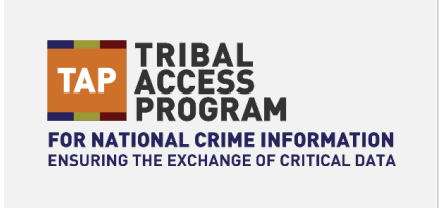The Task Force relies on people like you for assistance identifying potential trafficking situations.
If you see something, say something. To report suspicious or potential trafficking tips, utilize any of the following resources. Law enforcement relies on tips from community members like you to identify traffickers and liberate victims.
If you fear you or someone you know are in immediate danger, contact 911 to receive the most immediate response.
NATIONAL HUMAN TRAFFICKING HOTLINE
The National Hotline handles reports of potential labor and sex trafficking situations, involving adults and minors, foreign nationals and U.S. citizens, males, females, and transgender individuals. The National Hotline serves all individuals who reach out for services regardless of race, ethnicity, national origin, immigration status, religion, age, disability, sex, gender identity, gender expression, or sexual orientation.
The National Hotline respects an individual's right to make the decision regarding whether or not to report information about his/her experience to law enforcement or other parties.
If you or someone you know needs help, call the National Human Trafficking Hotline toll-free hotline, 24 hours a day, 7 days a week at 1-888-373-7888 to speak with a specially trained Anti-Trafficking Hotline Advocate. Support is provided in more than 200 languages. Callers can dial 711 to access the Hotline using TTY. You can also email us at help@humantraffickinghotline.org. To report a potential human trafficking situation, call the hotline at 1-888-373-7888, or submit a tip online here. All communication with the hotline is strictly confidential. Read our Confidentiality Policy here.
CRIMESTOPPERS GREATER NEW ORLEANS
The process of calling Crimestoppers is simple. You call 822-1111 or 1-877-903-STOP, which puts you in contact with the Crimestoppers command center. An operator will answer the phone and take down the information you wish to provide about a crime. He or she will never ask for your name, number, address, or any other identifying information. You can also place a tip on our website from the tip submit button on the main page or you can download the CrimestoppersGNO "Community" app for smartphones.
The promise of anonymity for callers is Crimestoppers most powerful weapon in the fight against crime. We do not have caller ID. We do not use *67. We do not record phone calls. Information given to Crimestoppers is protected under Louisiana’s Privileged Information statue R.S. 15. 477.1
LA - SAFE
Call Louisiana State Police 24/7 Hotline at 1- 800-434-8007. In Louisiana, in our communities, we share everyday moments with our neighbors, family, coworkers, and friends. We go to work or school, the grocery store, or the gas station.
It's easy to overlook these routine moments, but as you’re going about your day, if you see something that doesn't seem quite right, say something.
By being alert and reporting suspicious activity to your local law enforcement, you can protect your family, neighbors, and community.
ICE/HSI TIP LINE
Call 1-866-DHS-2-ICE (1-866-347-2423) to report suspicious criminal activity to the U.S. Immigration and Customs Enforcement (ICE) Homeland Security Investigations (HSI) Tip Line 24 hours a day, 7 days a week, every day of the year. The Tip Line is accessible outside the United States by calling 1-802-872-6199. You can also submit a tip at www.ice.gov/tips. Highly trained specialists take reports from both the public and law enforcement agencies on more than 400 laws enforced by ICE HSI, including those related to human trafficking.
National Center for Missing & Exploited Children’s (NCMEC) & National Crime Information Center's (NCIC).
If you believe a child is involved in a trafficking situation, provide a tip through the National Center for Missing & Exploited Children’s CyberTipline or call 1-800-THE-LOST. Federal Bureau of Investigation personnel are assigned to the National Center for Missing & Exploited Children, and review information that is provided to the CyberTipline.
The Federal Bureau of Investigation’s (FBI’s) Criminal Justice Information Services Division manages and maintains the National Crime Information Center's (NCIC) which includes the NCIC Missing Person File. Reporting to NCIC will assist other law enforcement agencies in identifying your child if they are located in another community. In accordance with Title 34, United States Code, Section 41307 (Suzanne’s Law), a record for a missing person under the age of 21 must be entered into NCIC by federal, state and local law enforcement agencies.This requires an NCIC entry for a missing child by state and federal law. In addition, the Adam Walsh Child Protection and Safety Act of 2006 mandates entry of those individuals into the NCIC within 2 hours of receipt of the minimum data required to enter an NCIC record.
Contact the Louisiana Clearinghouse for Missing and Exploited Children by calling 1-800-434-8007.
Additional information is available at Lousiana Center for Missing & Exploited Children (LACMEC) website.
The U.S. Department of Justice (DOJ) launched the Tribal Access Program for National Crime Information (TAP) in August 2015 and has expanded yearly to provide Tribes access to national crime information systems for federally authorized criminal justice and non-criminal justice purposes.
Fact Sheet and Guide on How to Enter Missing Persons







